Newly released data from the Knowledge of and Attitudes towards the European Union in Georgia survey, which CRRC Georgia carried out for the Europe Foundation, suggests that the public’s attitudes are changing about women having pre-marital sex and children out of wedlock.
While in 2015, 69% of Georgians thought that it was never justified for a woman to have pre-marital sex, 55% did in 2021, a 14 percentage point decline. During this same period, there was a 10 percentage point increase in the share of people reporting that it is sometimes or always justified. A large amount of these changes took place between 2019 and 2021, with an 11 percentage point decline in thinking pre-marital sex was never justified for women, while there was a six percentage point increase in thinking it is justified at least some of the time.
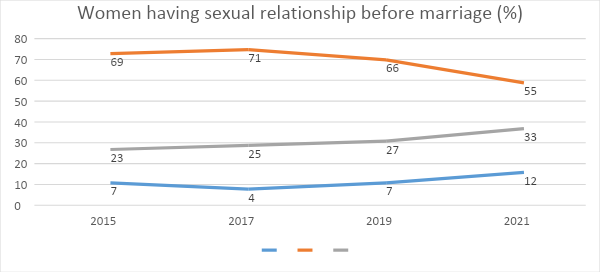
Similarly, attitudes towards women having children out of wedlock have changed. In 2015, 57% said it was never justified. In 2021, 42% did. The share reporting that it is sometimes or always justified increased from 37% to 47% in the same period.
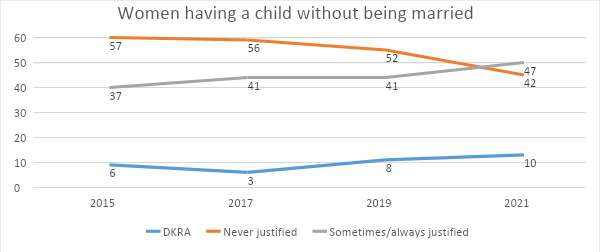
Young people aged 18-34 are generally more liberal than older people regarding women having sexual relationships before marriage and having children without being married. Comparing the most recent wave to the 2019 data suggests that people under the age of 55 are becoming more liberal about women having children outside wedlock, while older people’s attitudes did not shift significantly. With regard to having pre-marital sex, the data suggest that younger people (18-34) and older people (55+) became more liberal, while the age group in between did not change their views.
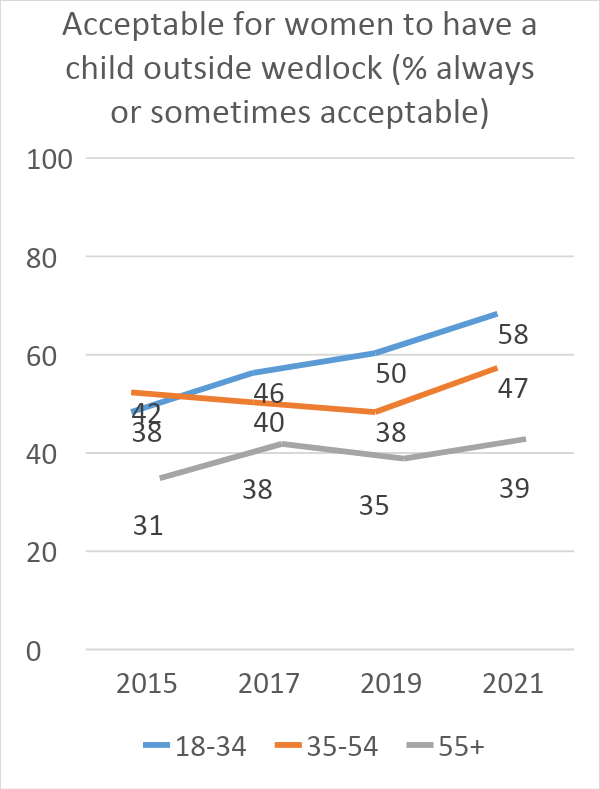
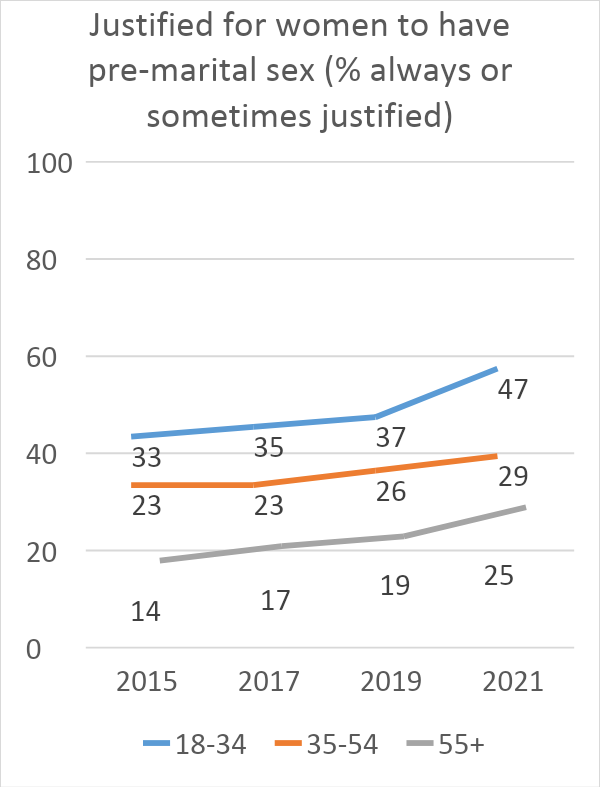
Generally speaking, people living in Tbilisi are less conservative than people living in other areas. While this remains true in the 2021 data, the changes described above stem from people in rural areas becoming more liberal on pre-marital sex and women having children outside of marriage. In contrast, views in urban areas did not change significantly between 2019 and 2021.
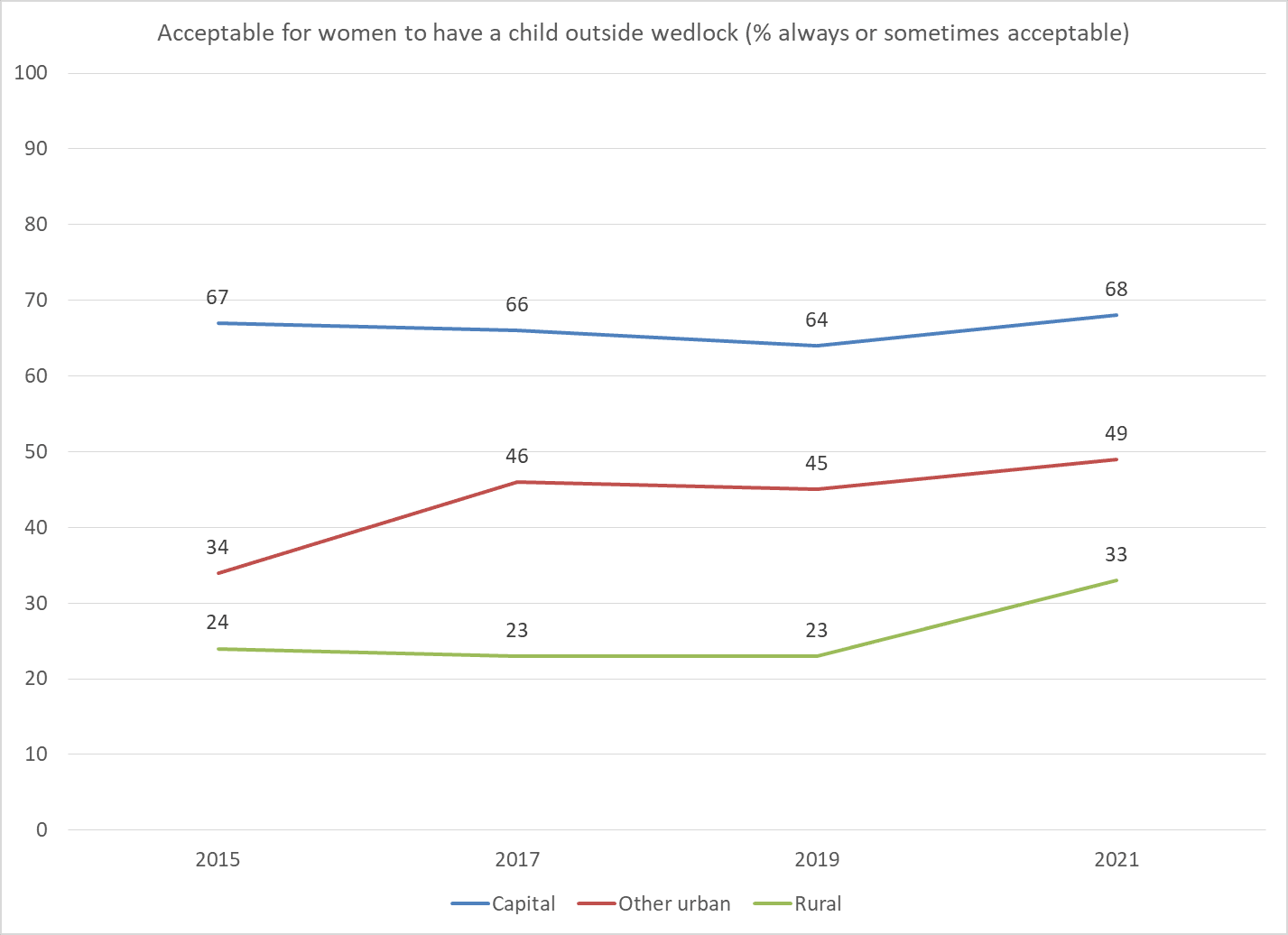
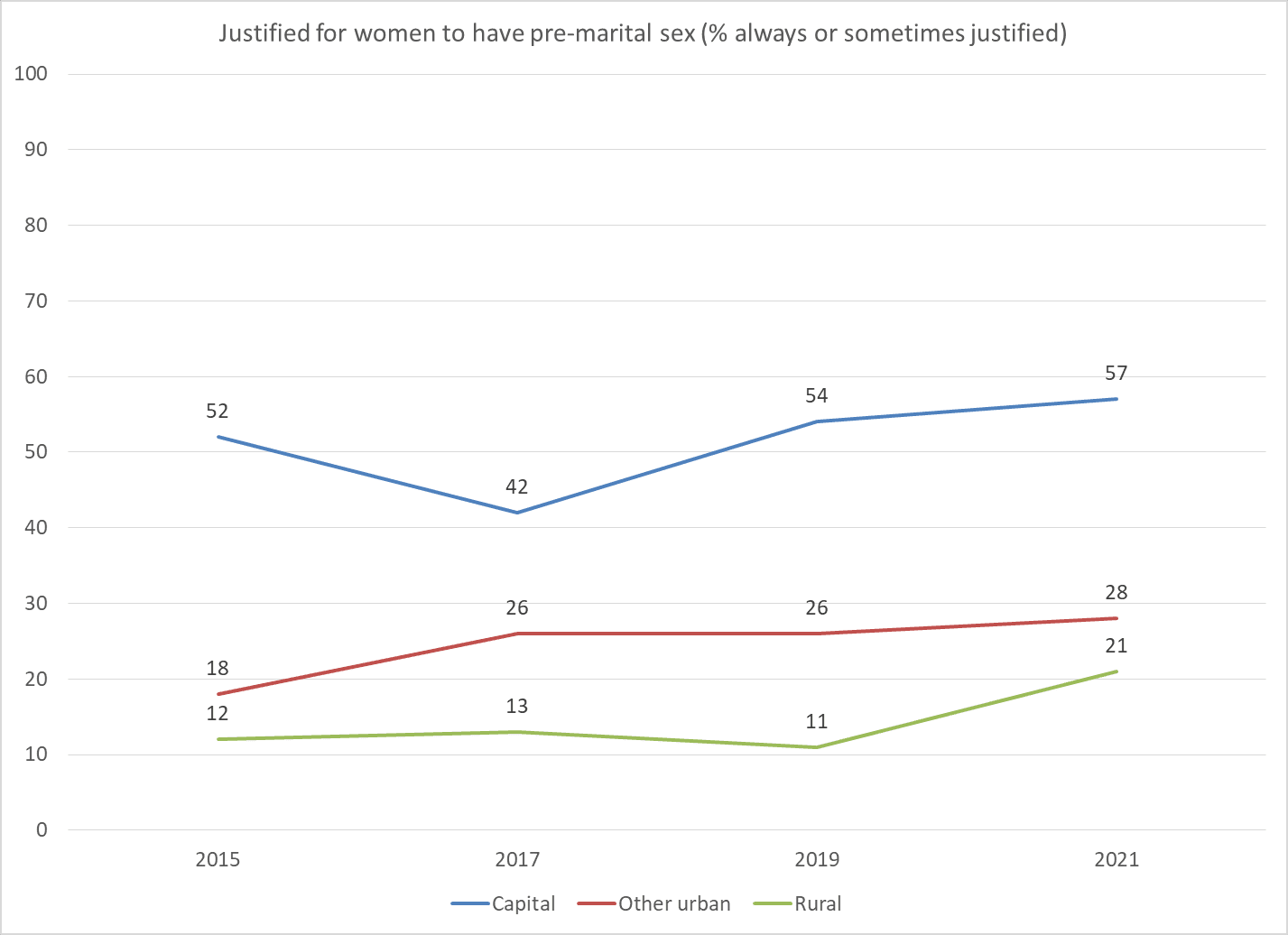
The data shows that people with higher than secondary education are more tolerant about both issues than people with a lower level of education. The change in views observed between 2019 and 2021 primarily stems from changing views among those with tertiary education.
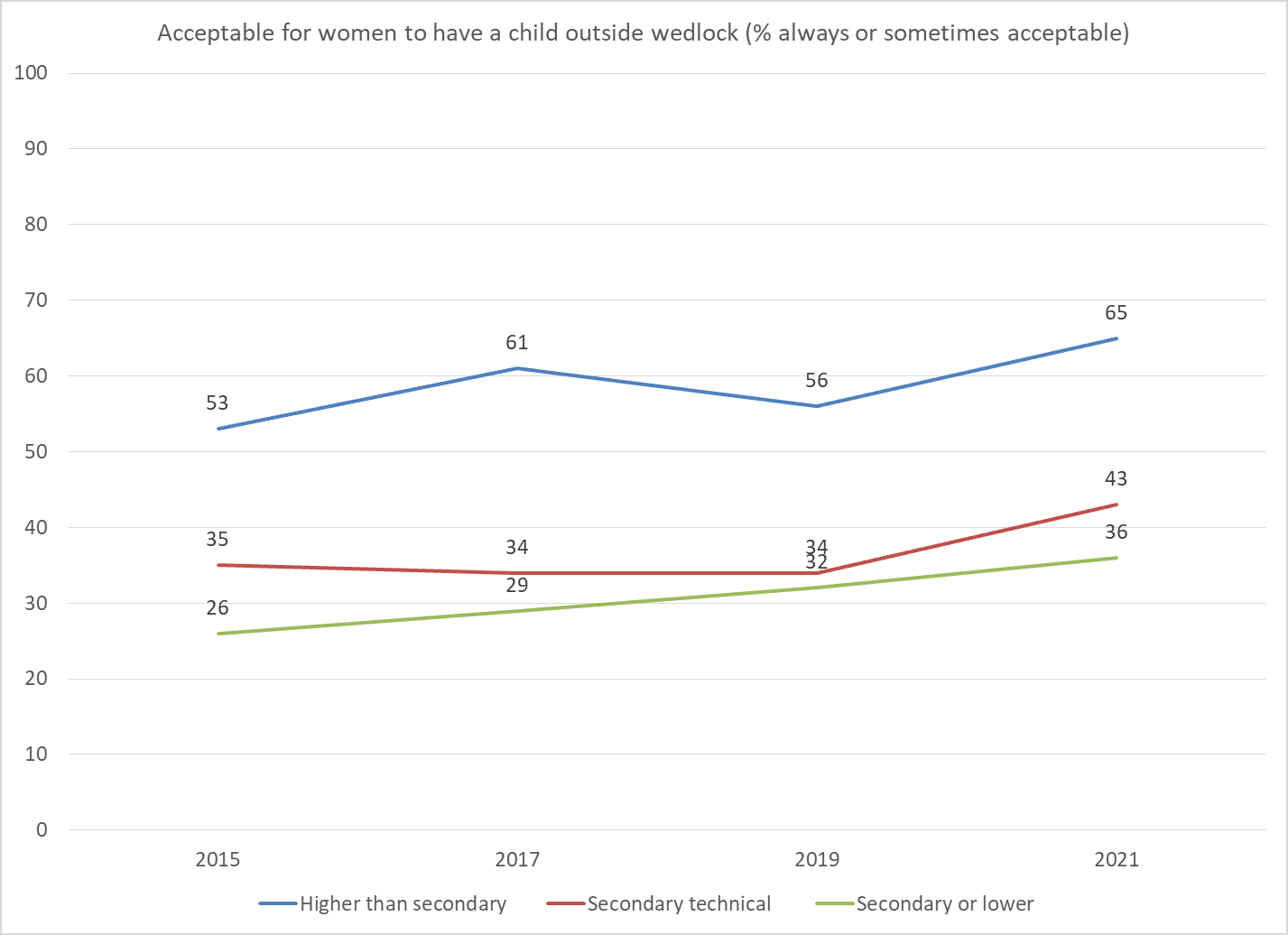
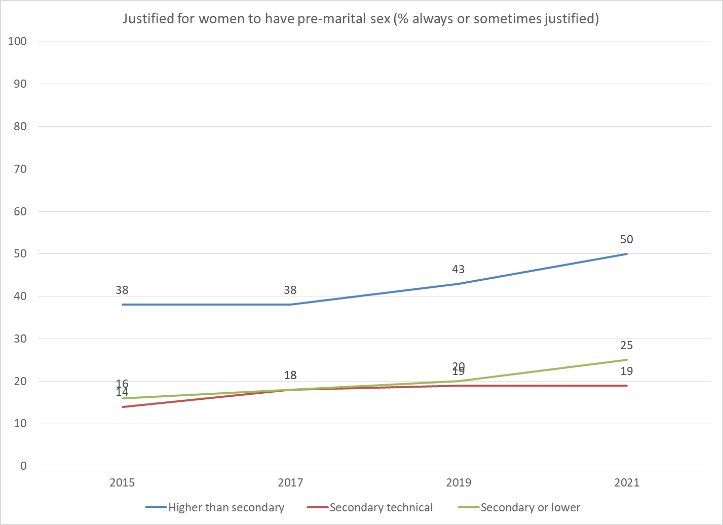
Generally, ethnic Georgians are more tolerant towards women having sexual relations before marriage and having children outside of it. The gap between ethnic Georgians and ethnic minorities expanded in 2021, as compared with 2019. Ethnic minorities’ views have shifted little in recent years on either issue.
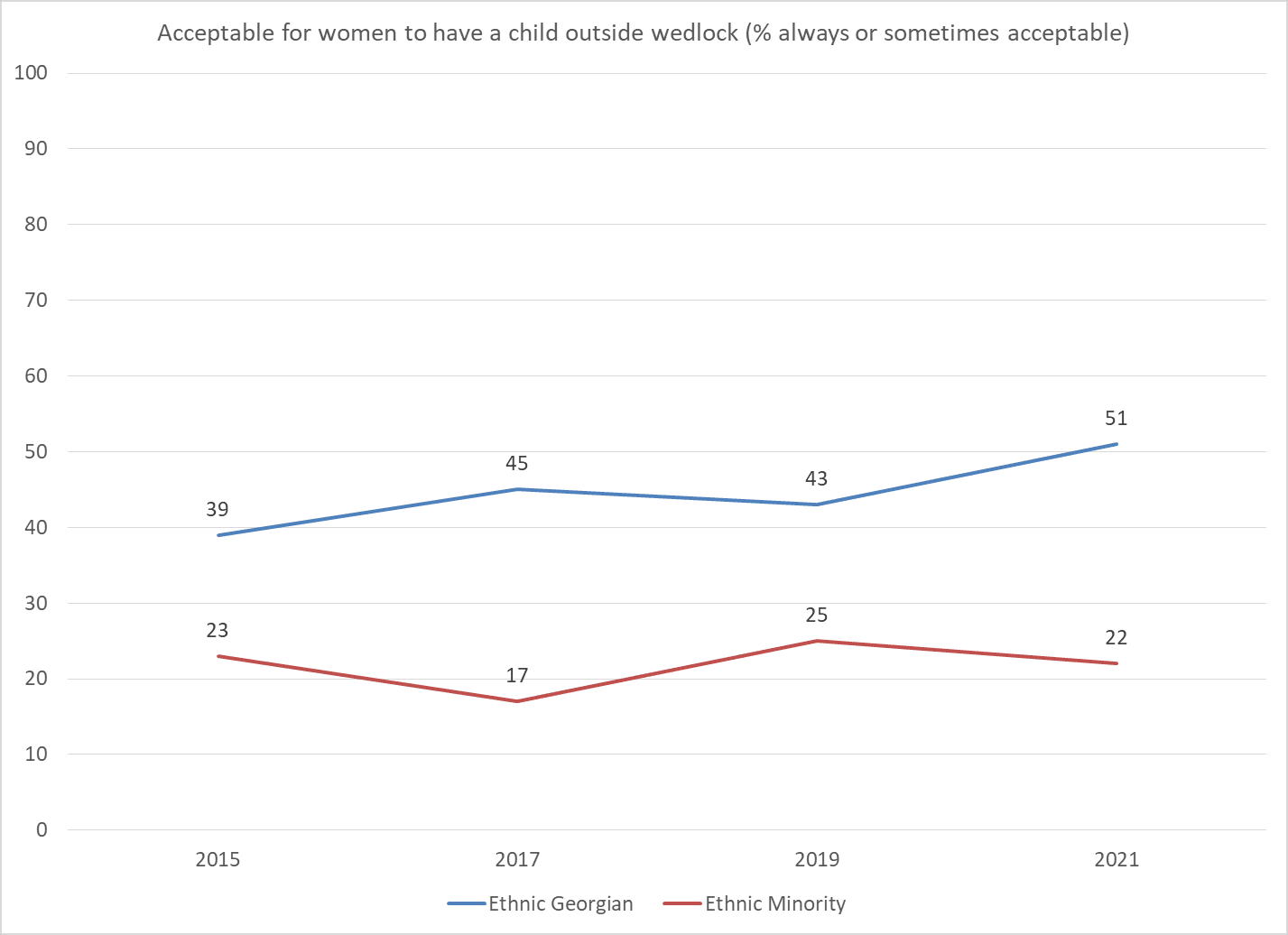
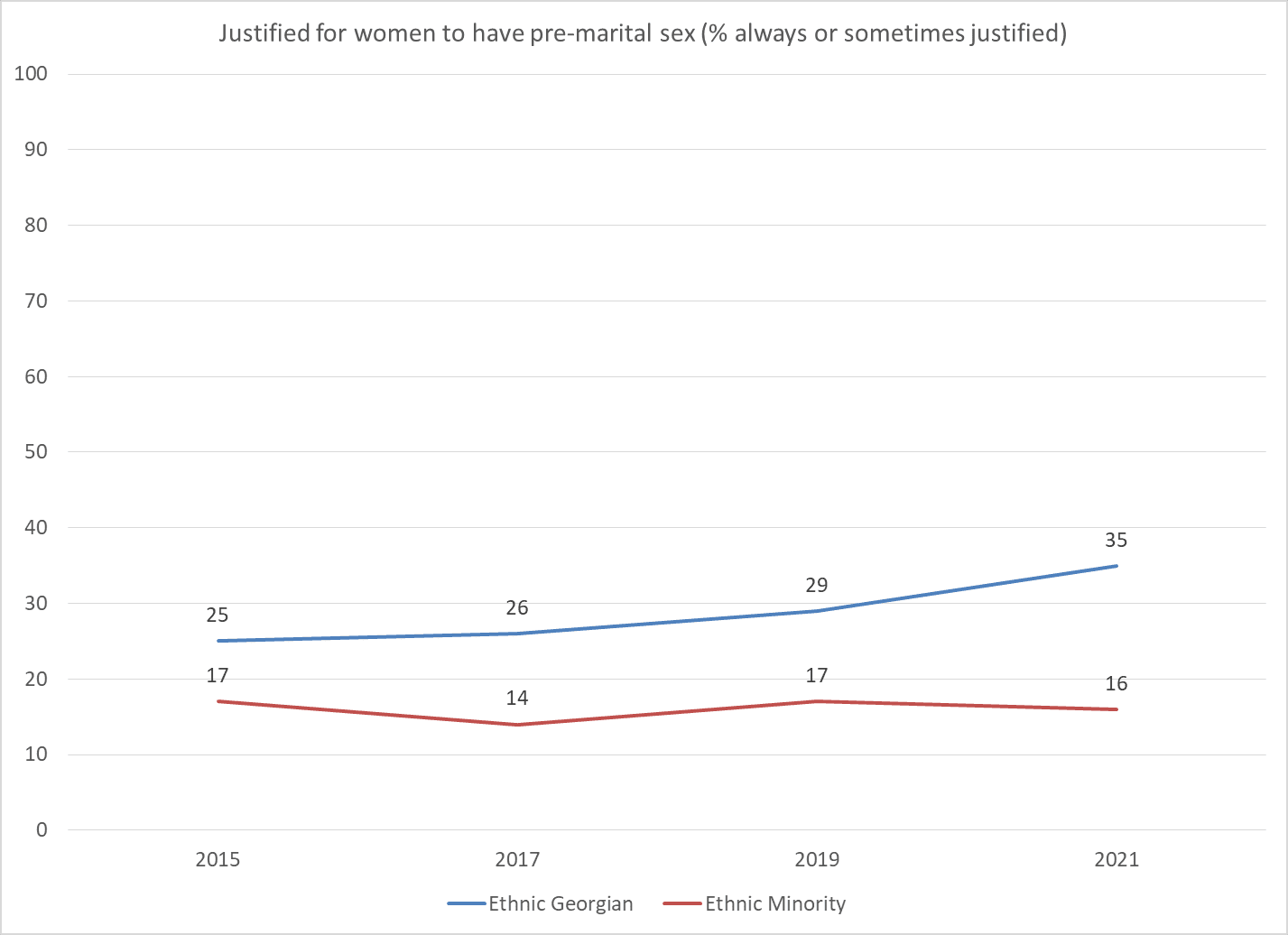
Analyses by gender did not show any difference with regard to women having pre-marital sex. Although gender plays a role in attitudes towards women having a child without being married, women more often say that it is acceptable than men. Attitudes among men and women moved in a similar manner between 2019 and 2021.
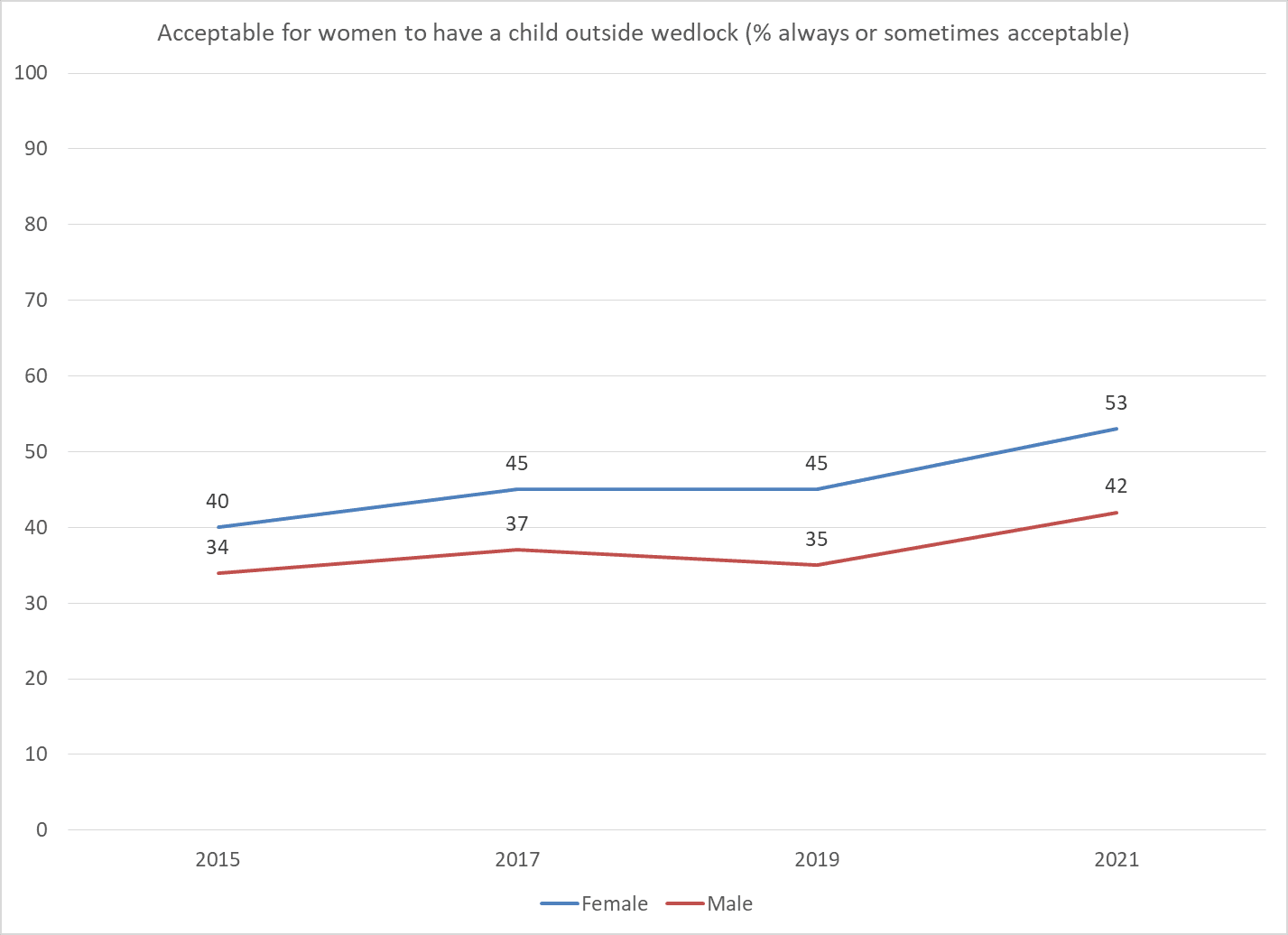
To summarize, people became less conservative towards pre-marital sex and women having children outside of wedlock in 2021. The data tends to suggest that rural people, young people, and those with higher education became more liberal during this period.
The data presented in the above article is available here.
This article was written by Kristina Vacharadze, Programs Director at CRRC Georgia, and Anano Kipiani, a Researcher at CRRC Georgia. The views presented in this article do not represent the views of CRRC Georgia, the Europe Foundation, or any related entity.



















